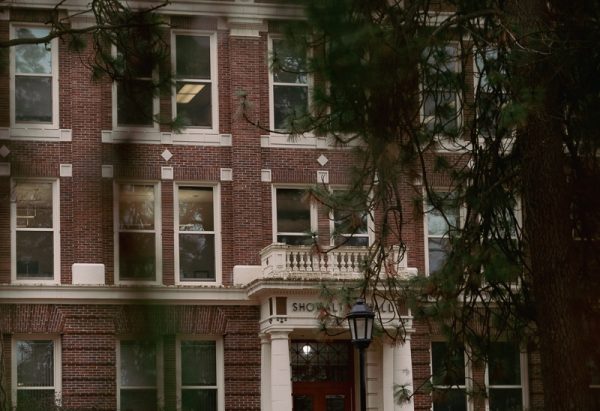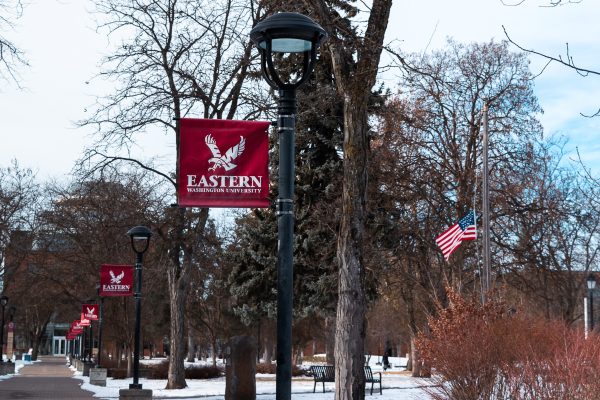Washington prepares for the spread of Ebola
November 4, 2014
Washington state is far away from the Ebola outbreak in Africa, but the threat of infection is still being taken seriously.
KREM2 news reported on Oct. 20 that misconceptions about Ebola were spreading around Spokane thanks to a lack of knowledge, which is why the the Spokane Regional Health District (SRHD) is sending out weekly situation reports.
The SRHD released their second Ebola situation report on Oct. 20 covering Oct. 11 to 17.
The SRHD report said that within the Providence healthcare system, Sacred Heart Medical Center is the facility selected to administer medical care for confirmed Ebola patients and that test samples for Ebola would be sent to the Washington State Health Laboratory and the Centers for Disease Control and Prevention.
The Washington State Department of Health has on record that their public health laboratories are one of 13 state labs nationwide that are approved by the CDC to conduct initial testing for Ebola.
Scott Lindquist, a clinical assistant professor of epidemiology at the University of Washington and health officer of Bremerton-Kitsap County health district, in a phone interview said that all qualified labs need to go through proficiency testing before the CDC will provide them with Ebola testing kits.
According to the Washington state public health laboratories, Ebola testing by polymerase chain reaction will only be performed after getting approval from the CDC.
The National Center for Biotechnology Information defines a polymerase chain reaction test as a technique that amplifies DNA sequences by separating the DNA into two strands and then incubating it, a process that can be performed a billion times. Once amplified, the DNA segments would be compared to nucleotide segments from a known source. In this case, Ebola.
Lindquist said anyone wanting to be tested would first have to show signs of Ebola and prove they have been to one of the three countries with an outbreak or have been around an Ebola patient.
“The local health jurisdiction would be involved; we’d confer here at the public health lab with the state department of health and we would authorize the test here,” said Lindquist.
He said it would be the same for samples from other states, which would only be sent to Washington after approval from the local health department, state health department and the CDC.
Frank Houghton, Medical Professionals Health program director and associate professor at Eastern, said contagious diseases tend to follow transport flows and will often spread to major population centers before cascading out to more local networks.
“From a Spokane perspective, the relative isolation of the city may, in a major outbreak, be helpful,” said Houghton.
Washington does have the Sea-Tac International Airport, but the Department of Homeland Security made an announcement on Oct. 21 that all passengers flying to the U.S. from Liberia, Sierra Leone or Guinea have to fly to one of the five airports doing increased screening for Ebola. All five airports are located on the eastern side of the nation.
Houghton said at the Washington State Public Health Association’s annual meeting and at a health conference in Seattle, Washington, Washington’s Secretary of Health John Wiesman, DrPH, and hospital executives all stated that their preparations were proceeding on the basis of “when Ebola reaches Washington” rather than “if.”
“There have been no cases of Ebola in Washington state and we’ve tested no one in Washington state, but we are just about to start the flu season which is a very concerning disease,” said Lindquist. “People in Washington die every year from the flu and we want people to be ready for something that’s here and coming, and that’s the influenza season.”






![Simmons said the biggest reasons for her success this year were “God, hard work, and trusting [her] coach and what she has planned.”](https://theeasterner.org/wp-content/uploads/2024/05/image1-1-1200x800.jpg)










